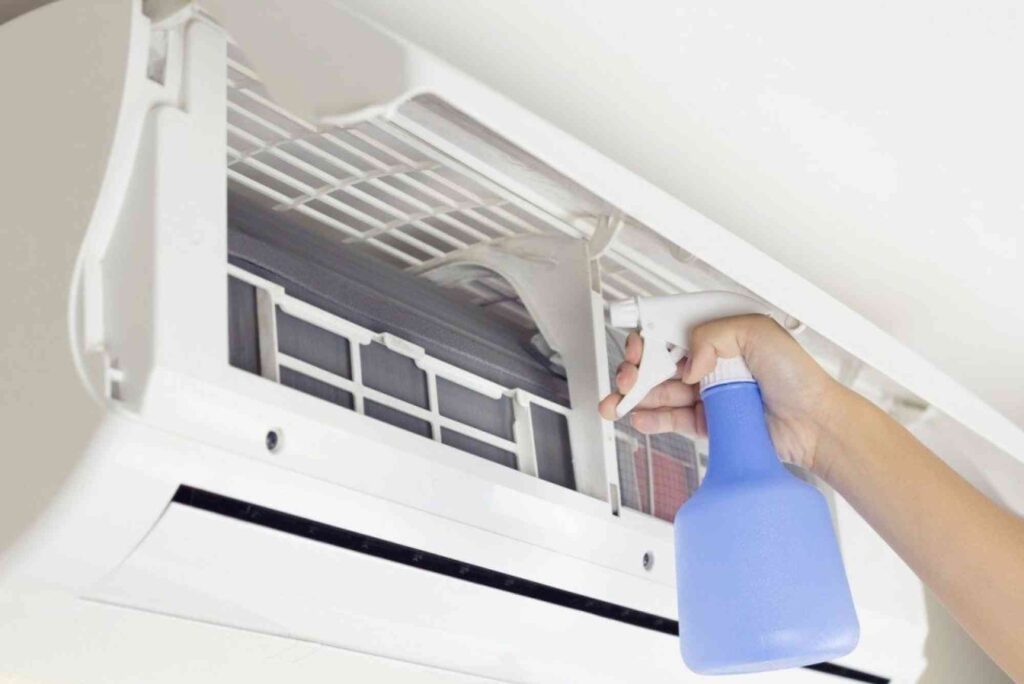Introduction
Mold in air conditioner units not only compromises air quality but also impacts the efficiency of your cooling system. Keeping your air conditioner mold-free is essential for maintaining a healthy environment and avoiding costly repairs. This guide provides a step-by-step approach to preventing mold growth in your AC, complete with actionable advice, detailed explanations, and answers to common questions.
Why Mold Develops in Air Conditioners
Air conditioners create an environment conducive to mold growth due to the combination of moisture, warmth, and dust particles. When the unit operates, condensation forms on the coils, and if not properly drained, this moisture can accumulate. Dust and organic matter further promote mold growth by acting as a food source for mold spores.
Understanding the causes of mold is the first step toward prevention. Here’s how you can tackle this issue effectively.
Step-by-Step Guide to Prevent Mold in Your AC
Ensure Proper Drainage
Blocked or inefficient drainage is a leading cause of mold in air conditioners. Regularly inspect the drainage system to ensure water is flowing freely from the condensate drain line. Use a mild cleaning solution or a mixture of vinegar and water to clear any clogs in the line.

Clean and Replace Air Filters Regularly
Dirty air filters can trap dust and moisture, creating a perfect environment for mold. Check your air filters monthly and replace them every 1-3 months, depending on usage and the manufacturer’s recommendations. This simple step can significantly improve air quality and prevent mold growth.
Maintain Proper Ventilation
Lack of ventilation leads to excess humidity, which fosters mold growth. Ensure your home or workspace is well-ventilated, particularly in areas near the air conditioning unit. Open windows when possible and consider using a dehumidifier to maintain indoor humidity levels below 60%.
Schedule Regular Professional Maintenance
Professional maintenance is key to keeping your AC unit in top condition. Experts, such as those from Ac Repair Dubai, can thoroughly clean and inspect your unit, identifying and addressing potential mold problems before they escalate.
Use Mold-Resistant Coatings and Materials
Apply mold-resistant coatings to the interior components of your air conditioner. Additionally, use antimicrobial filters designed to inhibit mold growth. This proactive approach helps create an inhospitable environment for mold spores.
Preventive Measures to Consider
- Keep the Coils Clean: Evaporator coils can collect dust and moisture, providing a breeding ground for mold. Clean the coils every six months or as part of your annual maintenance schedule.
- Inspect the Ductwork: Leaks or damage in the duct system can allow mold spores to spread. Ensure all ducts are sealed properly and clean them periodically.
- Monitor Indoor Humidity: Use a hygrometer to measure humidity levels and adjust as needed.
Why Mold Prevention Matters
Mold in air conditioner units can cause respiratory issues, trigger allergies, and worsen asthma symptoms. It also reduces your AC’s efficiency, increasing energy consumption and utility costs. Taking preventive measures not only safeguards your health but also extends the life of your cooling system.
FAQs About Preventing Mold in AC Units
1. How often should I clean my air conditioner to prevent mold?
It’s recommended to clean your air conditioner every six months. High-usage systems may require more frequent cleaning.
2. Can I use household cleaners to remove mold from my AC unit?
Yes, mild household cleaners or a vinegar-water solution can effectively remove surface mold. However, avoid harsh chemicals that may damage components.
3. What signs indicate mold in my air conditioner?
Common signs include a musty odor, visible mold on components, and increased allergy symptoms when the AC is in use.
4. How can I reduce humidity in my home?
Use a dehumidifier, fix any leaks promptly, and ensure adequate ventilation. Regularly inspect windows, doors, and other potential entry points for moisture.
5. When should I call a professional for mold issues?
If you notice persistent mold growth, unusual odors, or reduced system efficiency, consult professionals like Az Repair Dubai for assistance.
Preventing mold in air conditioner units is essential for a healthy and comfortable living environment. By following these steps and performing routine maintenance, you can keep your AC mold-free and running efficiently.
For expert help, visit Az Repair Location and trust professionals to handle complex issues. Keep your air conditioner clean and mold-free to ensure a healthier home and better air quality.
